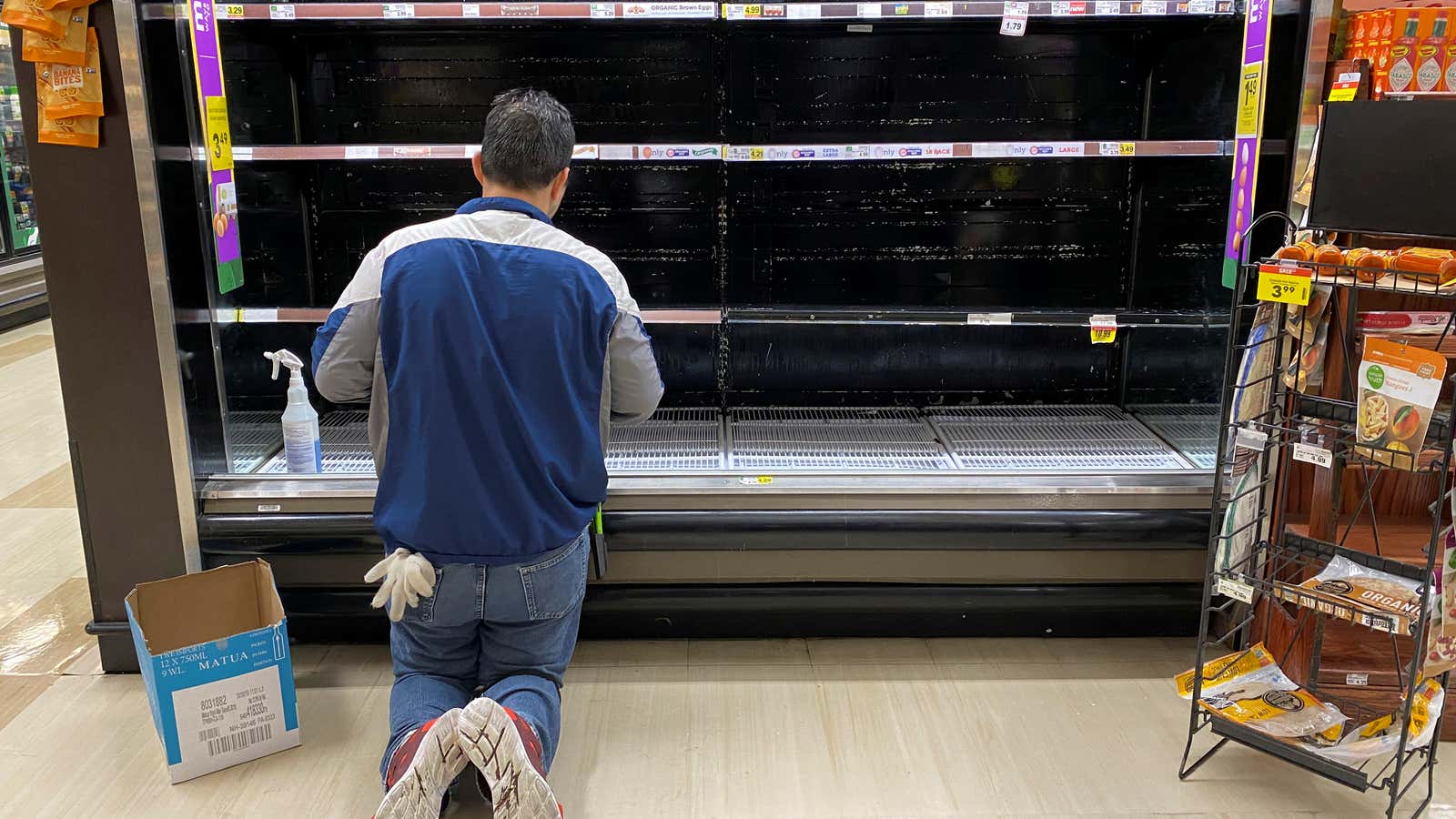Investments of almost all stripes have plunged as the global economy slips toward a coronavirus-led recession. But a few commodities have gone in the other direction: Panic buying at grocery stores has made eggs and orange juice the best performing assets this year.
A handful of agricultural commodities are in high demand. A dozen large white eggs has jumped to about $2.93, up from around $0.84 at the beginning of the year, according to FactSet, citing the USDA data. Futures for frozen concentrated orange juice, a famously speculative commodity derivative, have also soared.
Prices for these food commodities have skyrocketed, outstripping the gains for more traditional havens like gold, as governments lock down movement, shuttering restaurants and cafes, to slow the spread of the Covid-19 pandemic. Some consumers are likely buying orange juice for a health boost.
Egg orders from some retailers have jumped by as much as six times their normal levels, according to Brian Moscogiuri, at market research firm Urner Barry in Toms River, New Jersey. While demand has gone ballistic, the supply of eggs is relatively fixed. “You had this panic buying that occurred at retail,” he said in a phone interview. “Producers were up the chicken, as they say, trying to get eggs from the hen house to their customers as quickly as possible.”
Cal-Maine Foods, the biggest egg producer in the US, has risen about 1% this year in the US stock market, compared with a 19% decline for the S&P 500 Index. The Jackson, Mississippi-based company said in a statement yesterday that its facilities are operating normally despite the outbreak, with no supply chain disruptions. Cal-Maine, which produces about 20% of American shell eggs, said it’s giving supplemental pay to its employees.
OJ high
Orange juice is in demand because of panic buying, and also likely because consumers are hoping it will keep them healthy during the pandemic. “People are buying it as prophylactic against Covid-19,” said Neil Murray of IHS Markit.
OJ has an active futures market, which allows traders to hedge or speculate on prices for some later date. Murray says there are some genuine buyers who want to make sure they’ve secured their supply of orange juice, but much of the futures price has been driven by speculators, like proprietary trading firms and day traders.
“This is a bubble,” he said in a phone interview. “This is speculators piling in, and they do that with orange juice at the first sniff of something happening because the orange juice futures market can be very, very volatile.”
There are signs that the OJ high won’t last. Brazil, the biggest producer of the commodity, recently had a strong harvest, Murray said, while sales have been in decline in the US for more than a decade. “There is a global oversupply of orange juice,” Murray said. “There’s no shortage of orange juice, and demand is in long-term decline.”
Some wellness influencers on social media, meanwhile, are reportedly touting vitamin C as protection against Covid-19. There’s no vaccine for the disease, and experts estimate that the development of one could take a year or much longer. There are no cures or proven treatments either.
Some research suggests that vitamin C can help the immune system fight off bacteria and viruses, according to Peter McCaffery, professor of biochemistry at University of Aberdeen. But he says it’s unlikely that the vitamin will prevent, or cure, a Covid-19 infection.
“The most effective way to avoid the virus still remains washing hands, not touching the eyes, nose or mouth, and keeping your distance from anyone exhibiting symptoms,” McCaffery wrote in The Conversation.
